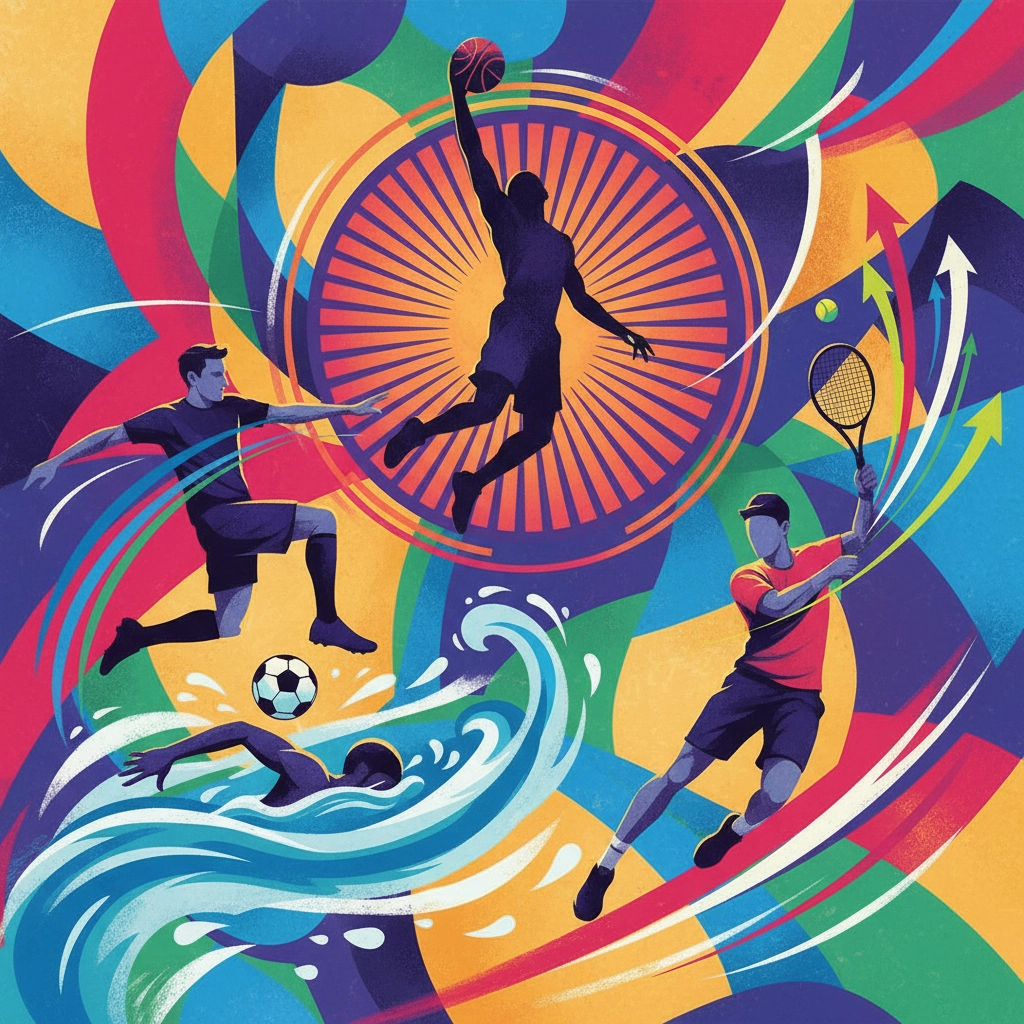While headlines proclaimed the end of SATs during the pandemic, 2025 tells a completely different story: one that savvy international athletes are already leveraging to their advantage.
The Great SAT Revival of 2025
Forget everything you heard about test-optional admissions being the new normal. The nation's most prestigious universities have reinstated SAT requirements with a vengeance. Harvard, MIT, Stanford, Yale, Brown, and Dartmouth all now require standardized tests for fall 2025 admissions. We're talking about score expectations that would make your head spin: Harvard wants 740-780 for Reading & Writing and 760-800 for Math.
Even state powerhouses like the University of Florida, University of Texas at Austin, and Georgia Institute of Technology have jumped back on the standardized testing bandwagon. Only three Ivy League schools remain test-optional: Columbia, Princeton, and UPenn. The rest? They want to see those scores.
But here's where it gets interesting for international athletes. While traditional applicants are scrambling to prep for these newly mandatory exams, athletes are discovering alternative pathways that didn't exist before.

The International Athlete Advantage: A Hidden Opportunity
International student-athletes are winning scholarships without traditional requirements because the rules changed in ways most people don't understand. There's now a crucial distinction between athletic eligibility and college admission requirements: and this gap creates unprecedented opportunities.
Athletic Eligibility vs. College Admission: The Game-Changing Difference
NCAA Division I and II schools no longer require SAT or ACT scores to determine if you're eligible to compete athletically. Read that again. You can be cleared to play college sports without ever touching a standardized test. However, individual colleges may still require these scores for general admission purposes.
This separation means athletic talent can compensate for traditional academic metrics in ways that were impossible just a few years ago. International athletes with exceptional skills but average test scores suddenly have leverage they never had before.

Multiple Scholarship Pathways Open Up
International student-athletes can now access several types of financial support:
Athletic Scholarships: Available at NCAA D1 and D2, NAIA, and NJCAA levels. While most cover partial costs, they're no longer tied to standardized test performance for eligibility.
Academic Scholarships: Still available for students with strong GPAs, regardless of their athletic status.
Need-Based Financial Aid: Accessible depending on the institution and your family's financial situation.
The key is understanding that these pathways can work independently or in combination, giving international athletes multiple shots at funding their education.
What International Athletes Still Need to Meet
While SAT requirements for athletic eligibility have relaxed, international student-athletes face other mandatory requirements that haven't changed:
Academic Documentation Requirements
Completion of secondary education or equivalent in your home country
Minimum GPA in core academic subjects (varies by sport and division level)
Certified academic records with official translations
Proof of amateur status (documentation that you haven't been paid to play)
Standardized Testing: It Depends
Here's where strategy becomes crucial. SAT, ACT, TOEFL, or IELTS scores may still be required "depending on the institution." This isn't a blanket requirement anymore: it's school-specific and sometimes even coach-specific.
Smart international athletes are researching which schools have more flexible testing requirements while still offering strong athletic programs and academic opportunities.

NCAA Eligibility Center Registration
Every international athlete must register with the NCAA Eligibility Center. This organization evaluates academic and athletic credentials using country-specific guidelines. The process involves translating and converting international coursework to U.S. equivalency standards.
This step is non-negotiable, but the good news is that the Eligibility Center has become more flexible about standardized testing requirements for athletic participation.
The Strategic Timing Advantage
International athletes who start preparing as early as 10th grade have the highest success rates. This early preparation gives you time to:
Research schools with favorable policies for international athletes
Connect with coaches who prioritize athletic ability over test scores
Meet eligibility requirements without the pressure of last-minute SAT cramming
Build relationships with college programs before your senior year
The current landscape rewards early preparation more than ever because you can focus on athletic development and coach connections rather than spending months preparing for tests that might not be required for your sport or target schools.

How Athletic Talent Trumps Traditional Metrics
The separation of athletic eligibility from standardized testing creates scenarios where talent can overcome traditional academic barriers. Here's how international athletes are leveraging this:
Direct Coach Recruitment
College coaches with recruiting budgets and scholarship money have more flexibility to pursue talented international players who might not meet traditional admission requirements. If a coach wants you badly enough, they'll work with admissions to find alternative pathways.
Alternative Assessment Methods
Some schools are accepting portfolios, interviews, or demonstration projects in place of standardized tests. For athletes, this might mean showcasing game film, training videos, or athletic achievements rather than test scores.
Program-Specific Requirements
Certain athletic programs have negotiated different admission standards with their universities. A Division I soccer program might have more flexibility with international recruitment than the general admissions office.
Building Your Competitive Profile Without SATs
International athletes winning scholarships are focusing on elements that matter more than test scores:
Athletic Performance Data: Game statistics, training metrics, and competitive results that demonstrate improvement and potential.
Video Evidence: High-quality game film and training videos that show skills in action.
Coach Recommendations: Letters from current coaches who can speak to your character, work ethic, and potential for growth.
Academic Consistency: Strong grades in core subjects, even if standardized test scores aren't stellar.
Leadership Experience: Team captain roles, community involvement, or other leadership positions that demonstrate character.

The 2025 Recruiting Reality
While SATs aren't dead for general college admissions, they're becoming less relevant for international athletes who understand how to navigate the new system. The schools reinstating test requirements for regular students are simultaneously offering more flexibility for recruited athletes.
This creates a two-tiered system where athletic talent provides access to opportunities that high test scores alone can't guarantee. International athletes with exceptional skills are finding that coaches value performance potential over standardized test performance.
Your Action Plan for Scholarship Success
If you're an international athlete looking to win college scholarships without traditional requirements, here's your roadmap:
Start Early: Begin researching and connecting with college programs by 10th grade
Focus on Athletic Development: Invest in training, competition, and skill improvement
Document Everything: Create comprehensive records of your athletic achievements
Research Flexible Programs: Identify schools and coaches known for international recruitment
Register with NCAA Eligibility Center: Complete this requirement regardless of test scores
Build Coach Relationships: Direct communication with college coaches trumps application requirements
The international athletes winning scholarships understand that the game has changed. While traditional students are stressing about SAT comebacks, smart international athletes are leveraging their athletic talents through pathways that didn't exist five years ago.
Your athletic ability is your greatest asset in this new landscape. The key is knowing how to use it strategically and understanding which doors it can open: regardless of what standardized tests might say about your academic potential.


